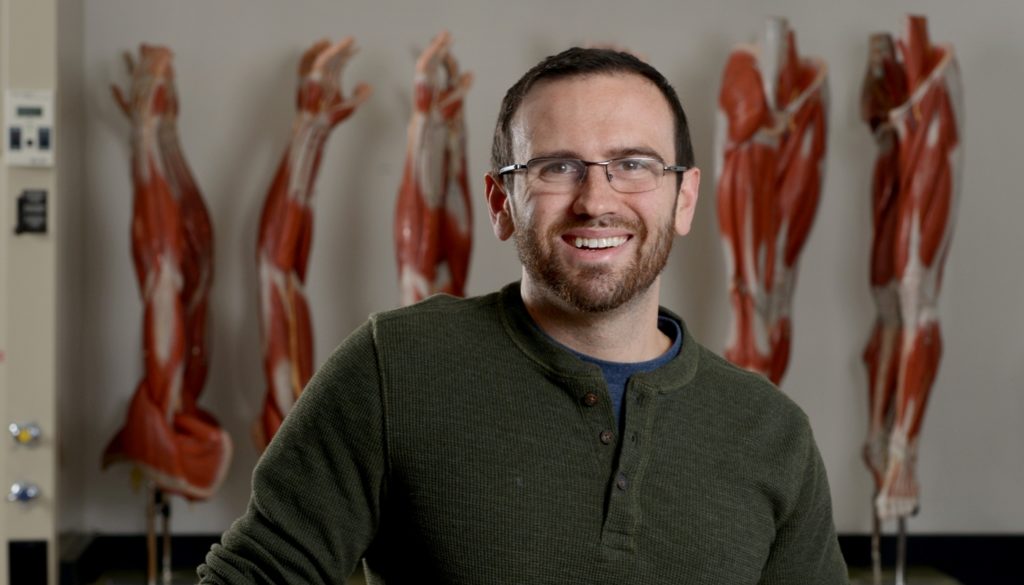
I really can’t rave enough about the Virginia Western Educational Foundation’s Innovation Grants, which are due in March.
These annual grants award up to $10,000 to faculty and staff (including adjuncts and part-timers) … and because it’s an internal grant program, the odds will be ever in your favor (unlike more competitive federal, state or foundation grants).
I have previously blogged about the perks of Innovation Grants, but I will summarize:
- An innovation grant project can amplify your strengths and what you love most about your job.
- They can be a way to solve a problem that you have long complained about.
- Grants are professional development — not only will they stretch you and your collaborative skills, but they will get you noticed on campus, in the community, and if it’s successful enough — throughout higher ed.
- You can test an idea with this “starter grant” and build bigger funding opportunities based on what you learn.
- But most of all, the best Innovation Grants fulfill the mission of the community college and help our students succeed.
I will give you a perfect example.
Dr. Matthew Goff is an associate professor of biology here at Virginia Western. Last March, he proposed one of the five grant proposals that were funded by the Foundation.
This is the project summary from his application, which earned him bonus points because he specifically addressed student retention:
“Currently, 30-40% of students who fail BIO 141 do not return to VWCC the following semester. This could be due to discouragement of failing a course, cost of tuition, and/or not being able to afford the materials required of the course; therefore, not being properly equipped to pass the assessments. The purpose of this project is to obtain a software program that will allow students enrolled within A&P at VWCC to access the software free of charge to the student. This is part of a greater plan to eventually have the course sequence being at minimal cost to the students.”
The members of the Foundation’s Scholarship & Grants committee — made up of representatives from the business community — gave high scores to Goff’s proposal, and he was awarded $5,940. The entire award paid the one-time fee for the Ovid Visible Body Software program, which features 3D medical visualizations that can be accessed on mobile devices. The program was implemented in Fall 2018 and will provide free access to students for years to come. The grant was part of a bigger department goal to reduce the cost of course materials through the introduction of an OER textbook and “in-house” lab manuals.
The project is a little over halfway complete, and Goff reports the software has had a greater impact than he originally expected. Not only do students in BIO 141/142 find it useful, but students enrolled in BIO 101/102 and other health programs are using it as well. He estimates it’s potentially benefiting 800 to 1,000 students each semester — and he plans to compare grades from previous semesters to the sections offered this year to determine if it has had any impact on student success.
I was curious to know more about what Dr. Goff thought about the Innovation Grant process … so I sent him these questions:
Why did you propose this project?
We have many students that are on a fixed income, and I want to provide them with the materials and knowledge that they need to be successful in their program of study at the lowest cost possible. Therefore, the project that I proposed and was awarded provided the students with a software program that covers all major concepts in anatomy and physiology — at no cost to the students.
What has been the most successful part of the project so far?
I have received positive feedback from many students and faculty on the program. This includes how the program has been helping students understand material for assessments in their courses and from faculty in other disciplines on how the software also benefits their students.
If you could go back in time, would you do anything differently?
I may have taken a survey before submitting the grant asking students about additional resources that they would like/need for success in Biology courses.
What advice do you have for your colleagues interested in pursuing an Innovation Grant?
It is not an extremely tedious process. If you truly desire the best for our students and college then it is very much a rewarding process.
How might the college better assist you with grant projects?
I believe the guidelines for submitting the grant need to be improved. I had to go back and forth a couple of times to figure out who I needed to submit information to. For newer faculty that want to pursue grants, it is nice having clear guidelines on the process and those involved in the grant process.
***
Thanks to Dr. Goff for his feedback … and his efforts to remove costly barriers for our students.
If you’re interested in pursuing a grant this spring, I urge you to attend an Innovation Grant workshop during January’s in-service. This will include an overview of the application process, with helpful tips for refining your ideas and putting together a budget. There will be time for Q&A.
Note that attendance at a proposal workshop will be required to submit a grant this year (and the in-service session would fulfill that requirement). More workshops will be scheduled this winter. I would be happy to answer any questions in the meantime.
— Stephanie Ogilvie Seagle, sseagle@virginiawestern.edu






 Shelley Lyons is glad to be back on campus as she is a Virginia Western alum, and has served as the Administrative Officer for Grants Administration at Virginia Western since early 2022. Prior to VWCC, her career focus was within the Human Services and Arts fields. She wrote her first grant in 1996 on a whim and has continued to plan and learn since that time. She most enjoys seeing a well-planned project come to fruition, where funder, project manager and beneficiaries can all feel success and see impact.
Shelley Lyons is glad to be back on campus as she is a Virginia Western alum, and has served as the Administrative Officer for Grants Administration at Virginia Western since early 2022. Prior to VWCC, her career focus was within the Human Services and Arts fields. She wrote her first grant in 1996 on a whim and has continued to plan and learn since that time. She most enjoys seeing a well-planned project come to fruition, where funder, project manager and beneficiaries can all feel success and see impact.